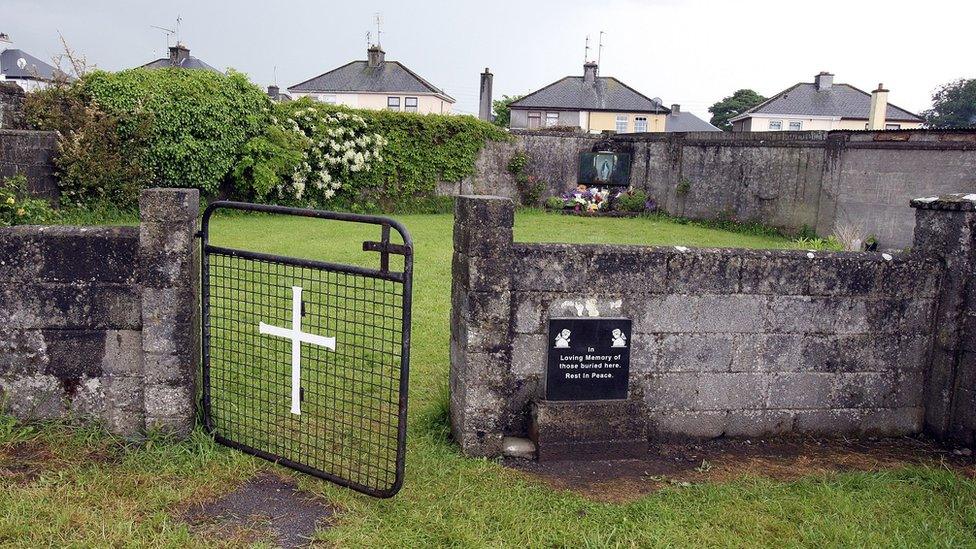Irish mother-and-baby homes: Survivors angered by inquiry findings
- Published
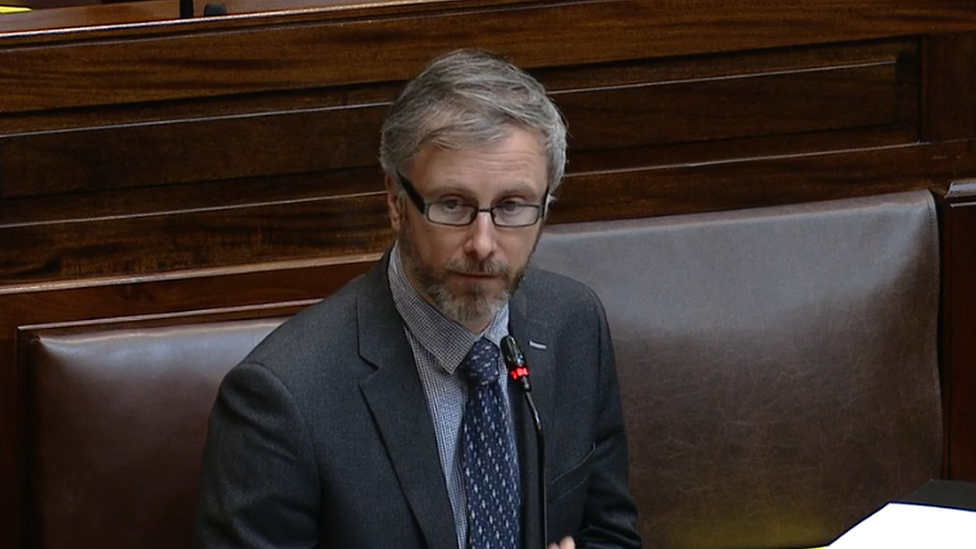
Children's Minister Roderic O'Gorman made his remarks in the Dáil (Irish Parliament)
Survivors of Irish mother-and-baby homes were disappointed and angered by the findings of the recent inquiry into the homes, Children's Minister Roderic O'Gorman has acknowledged.
He made his remarks to a parliamentary committee which raised concerns about the inquiry's final report last month.
The inquiry found no evidence women were forced into the homes by Church or state authorities and "very little evidence" of enforced adoptions.
Many survivors rejected those findings.
Campaign groups representing former residents of mother-and-baby homes, along with several opposition politicians, have questioned the inquiry's conclusions, external since they were published last month.
They also raised concerns over the decision to delete hundreds of audio recordings of survivors who gave personal statements to the inquiry about their experiences in the homes.
'Hurt and anger'
The inquiry - formally titled the Commission of Investigation into Mother and Baby Homes - said in its final report that witnesses were told before giving evidence to the Confidential Committee section of its inquiry that their recordings would be destroyed.
But some of the 549 witnesses who gave evidence to the Confidential Committee dispute that claim.
The chair of the inquiry, judge Yvonne Murphy, recently declined a request to appear before the Joint Committee on Children, Disability, Equality and Integration to answer questions from politicians.
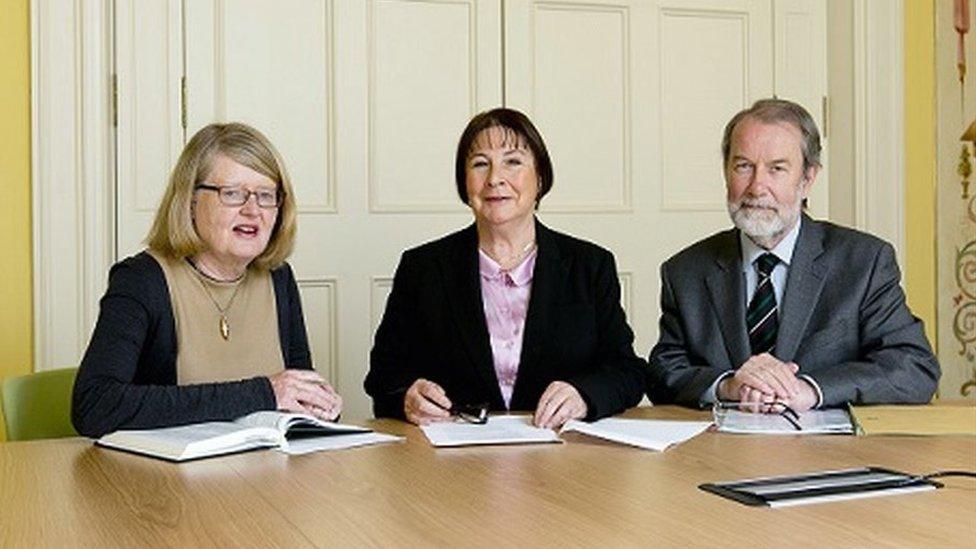
The commission's chair is judge Yvonne Murphy (centre) who led investigations into clerical child abuse
However, the children's minister agreed to appear before the same committee on Tuesday to address concerns about the inquiry's final report and the deleted recordings.
Asking the minister to attend, the committee's chairwoman, Kathleen Funchion, said: "There is a lot of hurt and anger among survivors at the conclusion that there is no evidence of forced adoptions or abuse in these homes, when this is clearly contradicted by the testimonies of those survivors."
In his opening statement, Mr O'Gorman said: "I know and understand that many survivors have been disappointed and angered by the report, finding its tone and language cold and overly legalistic.
"I recognise that some of the conclusions, grounded in a legal approach and analysis of 1.3 million pages of evidence, can feel removed from the grief, the breach of human rights and the trauma of the lived experience of many former residents."
The minister added that the inquiry's report did not represent a conclusion but a "starting point" from which the state can move forward with compensation, support and counselling for survivors.
In a separate letter to the committee, Mr O'Gorman also tried to address some of the questions about the deleted recordings of survivors' testimony.
He stressed that the inquiry's panel was independent from government and that he could not speak for them as he had no role in their operational decisions.
However, he explained that the Confidential Committee section of the inquiry was set up so that people with "lived experience" of the homes could share their personal accounts "in complete confidence" with a guarantee that their anonymity would be protected.
Mr O'Gorman said that given the "deeply personal" nature of some testimonies, some witnesses may not have come forward at all if the confidentiality arrangement had not been put in place.
"Therefore, the commission's position is that the decision not to retain these recordings was taken by it to ensure the anonymity it had promised," the minister added.
The minister pointed out that the testimonies given to the Confidential Committee were separate from other sworn evidence given to the inquiry which was "gathered and processed in accordance with the full rigours of the Commissions of Investigations Act".
The Department of Children is due to receive the inquiry's archived records when the Commission of Investigation is dissolved on 28 February.

What did the final report say?
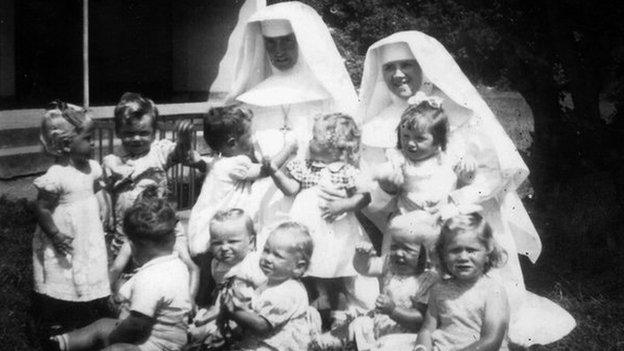
Among the homes investigated was Bessborough House, where more than 900 children died
The report concluded there was an "appalling level of infant mortality" in mother and baby homes and county homes (workhouses) in early 20th Century Ireland, even by the standards of the time.
The commission examined a sample of 18 institutions and found that 9,000 children died in those homes during the 76-year period it was tasked to investigate.
Despite a six-year investigation, it could not find burial records or graves for hundreds of the children.
In the years 1945-46, the rate of infant mortality in mother and baby homes was almost twice that of the national average for Irish children who were born outside marriage.
The report found there was "no single explanation" for the high death rate but suggested overcrowding; poor hygiene standards and a lack of infection control were likely contributing factors.
It also detailed the difficult living conditions and harsh treatment faced by women and children who lived in the homes.
It said state and religious institutions supported, condoned and "contributed to" that treatment, at a time when Irish society was generally indifferent to fate of children in mother and baby homes.
But the report concluded that responsibility for their harsh treatment "rests mainly with the fathers of their children and their own immediate families".
The commission added that it should be acknowledged that the homes under investigation "provided a refuge - a harsh refuge in some cases - when families provided no refuge at all".
The report also found "no evidence that women were forced to enter mother and baby homes by the church or state authorities", saying most women had "no alternative" due to lack of money and shelter.
That conclusion greatly angered survivors, several of whom had told the commission they were victims of rape and were brought to mother and baby homes on the instructions of their local priest or doctor.
In respect of adoption practices, the report said the commission found "very little evidence that children were forcibly taken from their mothers".
It said the commission "accepts that the mothers did not have much choice but that is not the same as 'forced' adoption".
Many survivors and several opposition politicians have challenged this assertion, incredulous that the commission came to this conclusion given the many testimonies of abused women and underage girls, few of whom had power over their own fate, let alone the fate of their children.
Some of the women said they were illiterate at the time they were supposed to have signed adoption papers.

Related topics
- Published10 February 2021
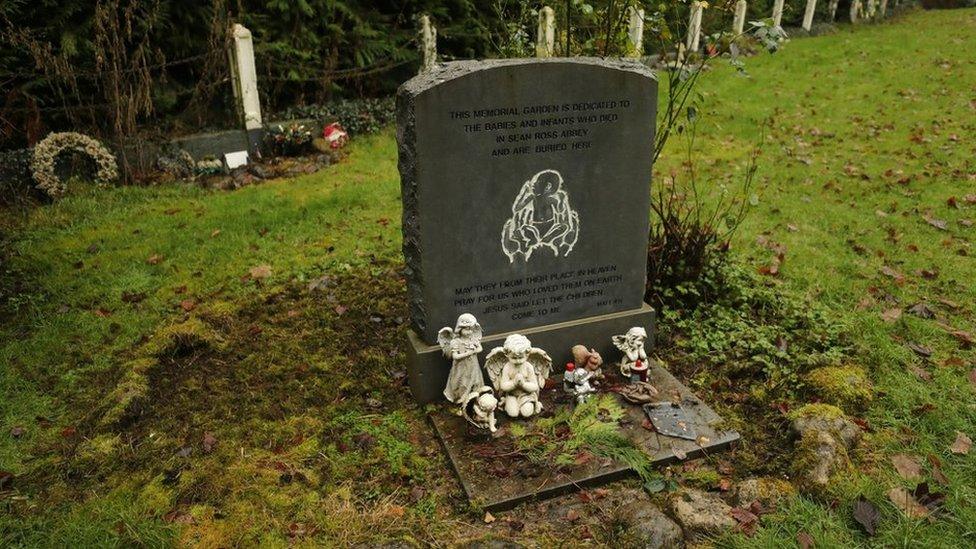
- Published13 January 2021
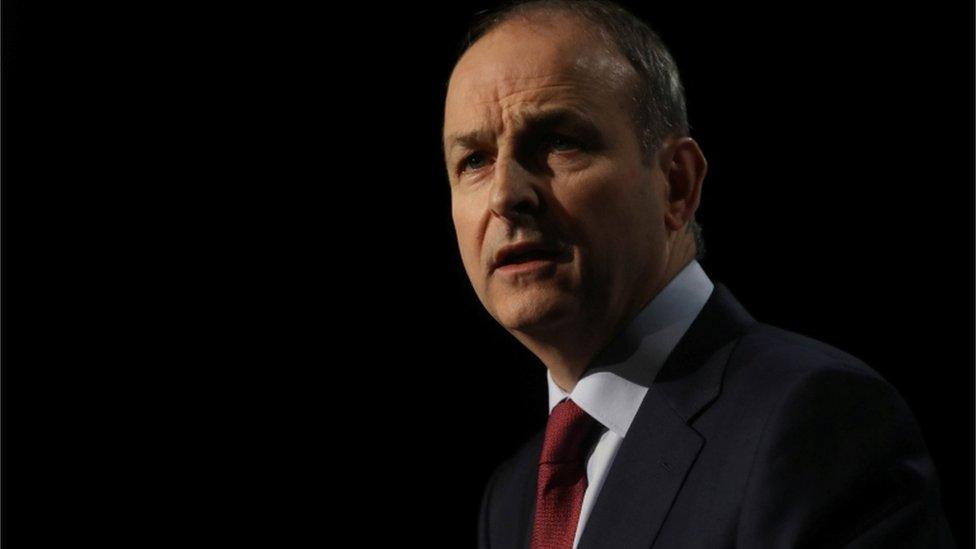
- Published13 January 2021
